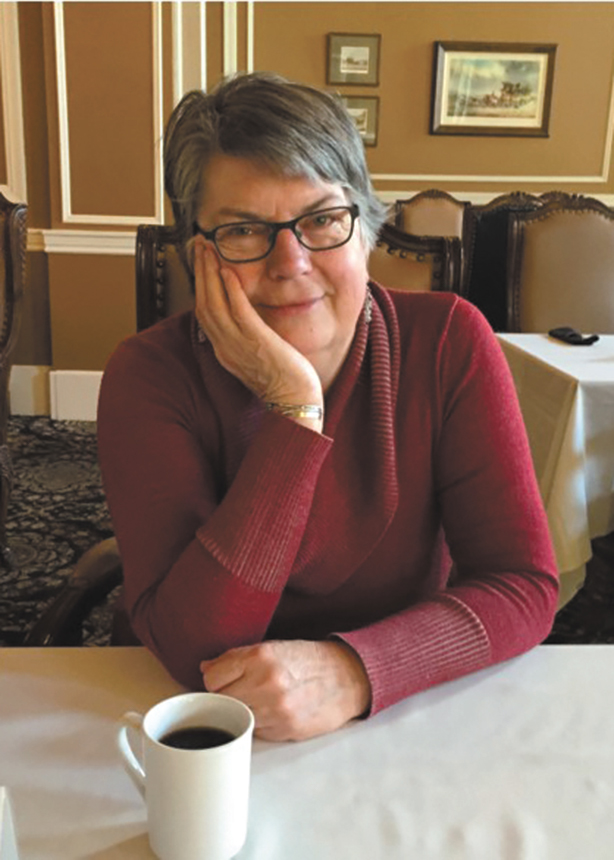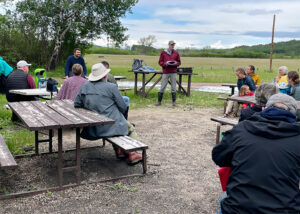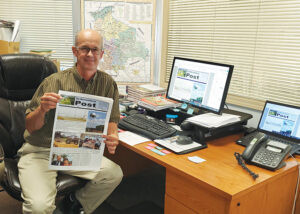“O God, from my youth you have taught me, and I still proclaim your wondrous deeds. So even to old age and grey hairs, O God, do not forsake me, until I proclaim your might to all the generations to come” (Psalm 71:17-18).
I have grey hair; this is where life has placed me. I am getting older.
I am discovering that there is still much to learn as I age. There are still interesting challenges ahead. And I have many companions —the baby boomers, those children who were born after the Second World War. We are a sector of the population who are used to success. We are still pretty healthy. Overall, we have a fair amount of money and we still have dreams for the future.
There is a story in Scripture that can help us out (Genesis 18:1-15). Sarah, the unsung hero, is married to this guy Abe, who keeps hearing God tell him that he is going to be the father of many nations, that his offspring would be as numerous as the stars!
But the couple don’t have children. They are not able to conceive a child together. And now they are—well, you might say—old. She is 90 and definitely postmenopausal, and he is 99-plus.
One day, three men appear at the tent of Sarah and Abraham in the heat of the day. Their tent is pitched next to the oak tree of Mamre, near a fine spring well. Abe rushes out to welcome them, offering them water to wash their feet, shade to rest in and food to sustain them. Sarah, maintaining proper role expectations of the day, remains in the tent, listening. One of the strangers, who somehow knows Sarah by name, predicts, “Sarah will have a son.”
I love the next part. Sarah laughs!
It’s not clear what was behind the laughter. My husband wonders if it was mocking and derisive. After all, what was being predicted was beyond imagination, unsettling and intrusive. Here they were in the desert, without progeny, without a future, powerless, homeless, landless and desolate.
I, on the other hand, think her laughter expresses pure joy, is playful and filled with delight at the new prospects. God was promising something new. The future was open. God had promised, and Sarah laughed. I like to think that she was delighting in the possibilities God had just opened up. God was going to make sure that this couple was blessed with a child.
That is precisely what happens. Sarah conceives and gives birth to a son. They name him Isaac, meaning “laughter.” Sarah, who was marginalized in parts of her story, is now drawn into the centre of God’s work. Her participation in the story brings new life where none seemed possible before. God is faithful and Sarah is faithful.
Sarah is aging, but her life is anything but over. The changes taking place in her life reflect the power of God at work transforming lives everywhere, all the time.
Some gifts of age
Here are some observations that speak of a life well lived, particularly as one ages:
- The first observation has to do with “hospitality.” Hospitality is holding space for another person. Holding space involves creating an environment in which love, acceptance and support are the defining features. Hospitality is opening one’s heart, one’s time and one’s presence to another person. It comes without judgment, but with acceptance, swimming in love, a love that flows out to another for the sake of that person.
- Richard Wagamese, an Ojibwe author, has written some powerfully empathetic novels. In Ragged Company, he follows the lives of street people whose group grows to include a disgruntled journalist, a lawyer and a person working for a lottery company. Through the words of one character called Timber, an accomplished wood carver with a particularly bitter attitude towards life, Wagamese teaches us an important lesson. Speaking of another character, Timber says, “I had failed him then. Failed to let him see me. Failed to let him know me in all the corrugated chips and fracture lines. Failed to let him know that friends are imperfect replicas of the people we think we choose, and that imperfection is the nature of it all.”
- We live together in community. When we practise hospitality, we belong in someone else’s heart. Timber says, “We come together in our brokenness and find that our small acts of being human together mend the breaks, allow us to retool the design and become more.”
- I wonder if there is any other earthly thing that is more important than a ragged company to walk with us through life.
- Another aspect of Sarah’s life is her willingness to embrace the unexpected, the different and the surprise we know as the future. She laughs but she is open to new possibilities and new experiences.
- Sarah had not always acted with this kind of openness and patience. A dozen years before, she had been much more impulsive. She had been anxious that Abe would not get his sky full of stars—his descendants—so she had sent her maidservant to Abraham’s bed. She had not been prepared to wait on God’s timing.
- Now things are different. She is now prepared to let others lead while she follows. Perhaps this is what the wisdom of age looks like: no longer pushing ahead with your ideas but rather supporting others in theirs.
- Ignatius Loyola, a Spanish priest and theologian also known for his work in spiritual direction, suggests that, as long as we are inordinately attached to our own ideas, to a certain outcome, we are not really listening to God. As long as we accept only one particular solution or result, we are not able to hear God. Sarah has given up her need to solve God’s problem and is now letting God be God.
The blessing box
Sometimes we attempt to work with situations in churches, believing that we have the correct answer. At other times, we listen to God and, through trial and error, discover what God is really saying to us. What happened at Grace Mennonite Church, in Prince Albert, Sask., is a good example.
One of the younger church members suggested that we put up a blessing box on the church property. The church building sits on the main street through town, between the liquor board store and the methadone treatment centre. There is much foot traffic. Almost every day, people with legitimate needs come to the church looking for help.
The blessing/pantry box was envisioned as part of an answer to meet the needs of hungry and cold travellers and people living on the street. Almost each day, people would place food items or items of clothing in the box, to be shared with those who needed them. Each day just before noon, one couple, both in their 80s, prepared a loaf of sandwiches and placed them in the box. Each evening, the box was empty.
Church members invited the neighbouring shop owners to join us in supplying the box with food and clothes. Some were eager to participate. Others were much more cautious. The nearness of needy folks was seen as a detriment to a thriving business. The woman who owned the dry-cleaning shop across from the church was cautious. So we had a conversation. She listened to our passion; we listened to her concerns. By the time we were ready to leave, she was volunteering to help us stock the blessing box.
Hospitality and an openness to surprise work well together. For those of us who are privileged enough to give up gainful employment at a certain age, the privilege to practise hospitality—to hold space for others—can become our focus. And we get to choose what that looks like. For some, it involves quilting with friends while preparing blankets for disaster response. For others, it includes holding infants in the hospital intensive care unit. For a group that calls itself Baby Boomers Plus, it involves a weekly get-together with exercise, coffee and stimulating, supportive conversation, and a monthly potluck.
Holding space for others is not unique to the older sector of our population but it certainly can become the vocation of those seasoned by life. In our imperfection, we can invite others into relationship, so that together we can visit healing upon each other. I am reminded of Leonard Cohen’s lyrics in “Anthem”: “Ring the bells that still can ring / Forget your perfect offering / There is a crack in everything / That’s how the light gets in.”
By the time we get to the second half of life, there are bound to be a few cracks in the foundation, and maybe even in the siding and the roof. But be encouraged: the cracks are essential. That’s how the light gets in. And that’s where the creativity gets out.
Claire Ewert Fisher is currently the interim pastor of Rosthern (Sask.) Mennonite Church. This is an adaptation of a sermon she preached at Wildwood Mennonite Church, Saskatoon, on Nov. 5, 2017.
For discussion
1. What assumptions does our culture make about people with grey hair? How is grey hair perceived differently on men than on women? What message is being given when you prevent or allow your hair to appear grey?
2. Do you agree that maturity helps us embrace the unexpected in life? Does it give us openness and patience? How does maturity help us to pursue other people’s ideas instead of our own? Is this what the Anabaptists meant by gelassenheit or “yieldedness”?
3. Claire Ewert Fisher writes that, “Hospitality is opening one’s heart, one’s time and one’s presence to another person.” Do you agree? Can you think of a time when you were offered this kind of hospitality in a surprising or extraordinary way?
4. Do you have dreams for your older years? What plans or expectations do you have for retirement? Do you know people who have made it their retirement vocation to practise hospitality and to hold space for others? Why is it important not to expect perfection of ourselves and others?
—By Barb Draper
Further reading:
An indoor yard sale says a lot about St. Clair O’Connor
In sickness and in health
Making every day matter
Learning from her elders









Leave a Reply
You must be logged in to post a comment.